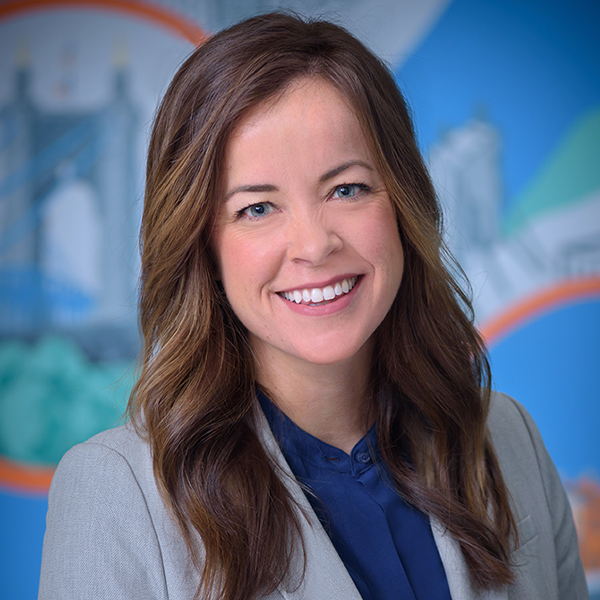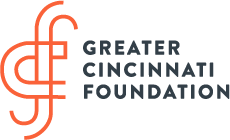Donor Advised Funds
A Personal Approach to Giving
If you want to be highly involved when you make a charitable gift and also want the flexibility of supporting a broad range charities, a donor advised fund at Greater Cincinnati Foundation could be a solution for you. Donor Advised Funds are a convenient, versatile tool that many individuals and organizations use to effectively plan and manage charitable gifts.
Flexibility with Donor Advised Funds
When you establish a donor advised fund at GCF, you can:
- Support your charities of choice throughout the country. Any public charity in the United States can receive grants from a GCF donor advised fund.
- Suggest multi-year grants that pay out on a regular schedule – or plan your grants to help charities when they need it most. You suggest the timing. GCF will manage the details.
- Give to annual campaigns such as ArtsWave, Community Shares and United Way of Greater Cincinnati.
- Donate stock, real estate, or partnership interests, as well as cash. Your investment portfolio is unique, therefore your giving options should allow maximum flexibility. GCF is equipped to handle complex gifts.
- Involve your children or grandchildren – and potentially generations to come. A GCF donor advised fund can become a family affair involving multiple generations of advisors.
- Safely access fund information and make grant suggestions online to make your contributions efficient and quick. We also accept suggestions by fax or mail.
Connect

Colleen McCarthy Blair, EMPA, CAP®
Vice President, Strategic Partnerships
513-768-6134
Ways to Add to Your Fund
You may add to your fund at Greater Cincinnati Foundation at any time. There are a variety of ways to make gifts to a fund you’ve established or to another GCF fund.

More about Donor Advised Funds
If you have questions on how to start or manage a GCF donor advised fund, download our frequently asked questions.
Interested in a Private Foundation?
When considering your charitable giving options, you may be looking at setting up a private foundation versus a donor advised fund. Items to consider when making your decision would be your anticipated level of involvement, the varying income tax deductions available, start-up costs and administrative requirements. Learn more
Additional Information
Setting up a donor advised fund is easy. A member of our Donor Services team will work with you to draft a customized Fund Agreement reflecting your unique charitable goals.
There is no minimum required amount to establish a donor advised fund (DAF). With a minimum annual fee of $400, we suggest starting a fund with at least $36,000 to “equalize” the minimum fee.
Once your fund is established, you will receive personalized service throughout your relationship with GCF. Connect with a member of our experience Donor Services team to get started.
You may make additional contributions to the fund as we have no limit to the number of gifts you may make in any given year. You are entitled to a tax deduction for every additional gift, of any size.
GCF is experienced in processing many types of assets and can work with you and your professional advisors. Appreciated stock may be the most beneficial contribution as donors receive a tax deduction based on the shares’ full market value, but realize no capital gains when GCF sells the stock. We also accept appreciated closely held stock and other business interests. GCF staff is pleased to discuss further the requirements to complete a proposed gift of closely held stock.
You will have the option of choosing from several GCF investment pools, including an Environment, Social and Governance (ESG) option. GCF also has relationships with local financial institutions that manage pooled funds for their clients and other GCF donors. Funds that exceed a balance of $2 million have the opportunity to create a separately managed account with their financial advisors; however individual donor advisors do not have discretion over the investment management of assets.
Contributions to a DAF are irrevocable. All money in the fund must be held for, or disbursed to, qualified public charities. You may terminate a fund by requesting that the entire balance be granted to qualified nonprofit entities.
Our Community Investment fee fuels the operations that enable our community leadership initiatives. GCF assesses a fee of 110 basis points (or 1.1%) of the fund’s market value up to $750,000 or $400, whichever is greater. The fee is calculated and assessed monthly and a sliding scale applies to larger funds.
Investment management fees depend on the investment strategy you select, and fees generally range from 10 to 92 basis points. All fees are collected from the investments. You will not pay any amount out of pocket.
Donor advised funds commonly have more than one advisor authorized to suggest grants and is determined when the fund is established. You have many options for your fund after your lifetime, including naming successor advisors, or converting the fund to benefit named organization(s) or areas of interest. If you have not named a successor advisor, or if your successor advisor(s) are deceased, the fund will generally convert to a Community Fund at GCF, from which distributable income will be used to benefit worthy nonprofit organizations in Greater Cincinnati. Succession plans may evolve over time, and your dedicated Philanthropic Advisor is your resource to ensure the fund continues to reflect the charitable legacy you intend.
We also encourage involving successor advisors directly or indirectly in the fund. Actively engaging family members in thoughtful and effective philanthropy during one’s lifetime is one of the best ways to achieve a meaningful legacy.
Through facilitated activities and conversations, members of multiple generations can uncover shared values. By developing shared plans with family members, you bring together generations to develop a comprehensive giving process and in doing so create a family legacy in the truest sense. Speak with your GCF contact to learn more.
Suggesting grants from your fund is simple. You will have access to a password protected online platform, Giving Connection, 24 hours a day. There you can monitor the fund balance, suggest grants, view past giving history and check on the status of a grant. The minimum grant size is $100 and we process grant requests every Thursday. If you need assistance with Giving Connection, your Philanthropic Advisor is available to help.
There is no limit to the number of grants you may suggest, and you are also under no obligation to grant a minimum number each year. However, we encourage you to be an active philanthropist and use your fund to support all your charitable interests. Some donors use their DAF to
facilitate more than 80% of their charitable giving each year.
Your fund can make grants to any U.S. 501(c)(3) that is a public charity, including schools, places of worship and hospitals.
By working through carefully selected U.S. intermediary organizations, GCF can help you make a grant to support a cause overseas – and it will comply with U.S. tax law and the Patriot Act’s anti-terrorism provisions. In exchange for these services in a highly complex arena, the intermediary receives a fee ranging from 8-12%. If a donor wants to support a specific type of project (for example, a clean water project in Africa), but doesn’t know how to make the gift, GCF can help.
IRS regulations require that a donor relinquish control over the gift at the time it is made. Donors only qualify for a tax deduction if they give the money to a public charity and relinquish the right to control it. GCF’s Governing Board is legally empowered to approve or deny a donor’s grant suggestion. If a donor suggests a grant to an organization that does not qualify for tax-exempt status, if it is clear that the donor would receive some benefit from the grant, the Board would deny the request.
GCF may not issue a grant check that formally indicates it is intended to fulfill a pledge or commitment an advisor has made. There are specific IRS rules regarding the deductibility of charitable contributions for which donors receive a benefit. Because a gift to GCF results in a full charitable deduction, the donor may not receive goods and services in exchange for that gift. Further, the Pension Protection Act of 2006 expressly prohibits donors, advisors and related parties from receiving “more than incidental benefits.” Penalties apply for not following the rules.
It is the donor’s responsibility to communicate to the nonprofit the nature in which the pledge commitment will be fulfilled. Additional limitations on grantmaking from a DAF can be summarized as “no people and no parties.”
- No People: DAFs may not make grants to individuals either directly or indirectly or to a
charitable entity for the benefit of a specified individual. Further, donors, advisors or related
parties are prohibited from receiving grants, loans, compensation or similar payments (including expense reimbursements) from DAFs. - No Parties: GCF cannot make a grant if the donor, advisor or related party receives
any benefit from the grant (e.g., tickets to a gala fundraising dinner, memberships, payment of a relative’s tuition to an educational institution, raffle tickets, etc.). If you could not write a check from your personal checking account and receive a full deduction for the gift, then GCF will not be able to make a grant.
DAFs may not be used to make political contributions. Please note that the Pension Protection Act of 2006 imposes penalties on donor advisors and foundation staff who do not follow these rules.
Lastly, grants cannot be made to organizations engaging in hateful activities that incite or engage violence, intimidation, harassment, threats or defamation targeting an individual or group based upon their identity.
